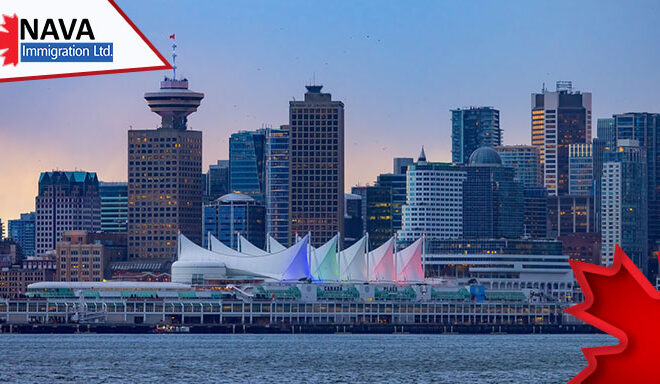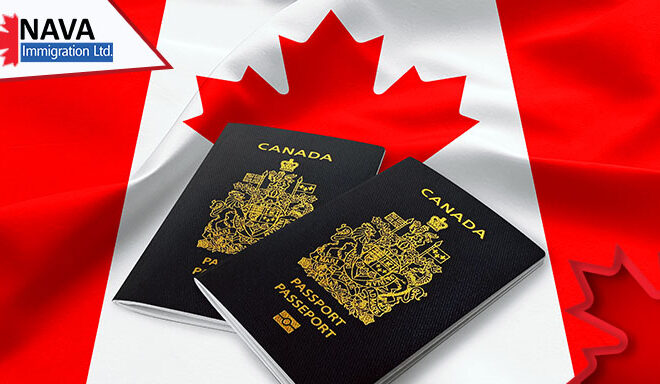Canadian Immigration Expectations for the Rest of 2023
The autumn and Christmas holidays are traditionally busy days for Immigration, Refugees, and Citizenship Canada’s developments and the Canadian immigration system as a whole.
Although Canada’s immigration system has various working components, there are various significant developments or alterations to keep an eye on as the year concludes. Regarding Canadian Immigration expectations, some of the vital developments include modifications to the priorities of Canadian immigration policy as well as the permanent residence levels. Additionally, this may also include updates to different Canadian immigration programs, such as international students programs, parents and grandparents programs, and work permit programs.
New Ministerial Mandate Letter: What is it?
In the forthcoming months of 2023, Canada’s Prime Minister, Mr. Justin Tradeau, may release a new Ministerial Mandate letter. The mandate letter includes instructions from the prime minister to the ministers on the government’s goals for their tenure. To put it in another way, the prime minister’s letter to the immigration minister sets the immigration policy of the country and significantly influences how IRCC functions in the future.
Typically, after a cabinet shuffle, it is the sole decision of the prime minister to issue a new mandate letter. However, the prime minister is not obliged to do so at all, and the new minister may continue from where the previous minister left off.
For instance, the most recent cabinet shuffle happened this summer in which Marc Miller was appointed Canada’s new immigration minister. In this case, the Prime Minister did not issue a new mandate letter, and the new minister, Mr. Miler, may continue where the previous minister, Mr. Sean Fraser, left off.
The previous mandate letter from the PM proposed that in order to encourage family reunification and solidify Canada’s economic growth and recovery following the pandemic, the ministers keep accepting newcomers to the country under the Immigration Levels Plan.
Canada’s Immigration Levels Plan between 2024-2026
The IRCC is constitutionally mandated to release its Immigration Levels Plans by November 1, in non-election years. The plan specifies the immigration targets for the total number of permanent residents to be admitted each year. The plan further divides the PR targets by immigration class, such as economic, humanitarian, and family or refugees, as well as by the program.
For instance, in the 2023-2025 immigration levels plan, Canada plans to accept over 500,000 new permanent residents each year by the conclusion of 2025. To break it down further, 301,250 newcomers will be from the economic class, and within that class, around 114,000 newcomers will be from the Express Entry program.
Immigration Minister Mr. Marc Miller stated that it remains unclear whether the IRCC department will increase, decrease, or keep its targets during the release of this year’s 2024-2026 immigration levels plan. He, however, added that he is not expecting a drop in the immigration targets.
OAG Report and Application Processing
OAG-the Office of the Auditor General is in charge of assessing the Canadian government’s internal operations and discovering the areas of improvement as well as the areas of progress.
In terms of Canadian Immigration Expectations, it is anticipated that the OAG will release an audit by the end of this year to find out whether the Department of IRCC has processed the PR applications quickly and efficiently in order to meet various goals such as strengthening the country’s economy, aiding humanitarian class applicants as well as reuniting families.
The audit is not likely to include the non-permanent resident applications processing.
Express Entry Program (EE)
This year, the Express Entry program has experienced several significant modifications. The IRCC department has announced the six new categories for the Express Entry category-based draws.
Instead of focusing on the high comprehensive ranking system (CRS) score, the candidate’s specific attribute is the principal factor in these draws. Among the six new categories, one category is non-occupation-based, requiring proficiency in the French language, and the other five categories require work experience in one of the following specific fields:
- Healthcare
- Science, technology, engineering, and mathematics (STEM) professions
- Trades, such as carpenters, plumbers, and contractors
- Transport
- Agriculture and agri-food
As per the Globe and Mail’s recent report, IRCC intends to prioritize candidates with work experience in the STEM (Science, technology, engineering, & mathematics) occupations. It stated that between 28-31 percent of the total Express Entry invitations issued this year are projected to candidates with work experience in STEM occupations such as data scientists and software developers.
Despite this, the most significant number of Invitations to Apply (ITAs) over this summer have been issued for the all-program draws, which comprise applicants from programs such as the Canadian Experience Class (CEC), the Federal Skilled Trades Program, and the Federal Skilled Worker Program. Notably, there is no indication that this trend is going to change.
Parents and Grandparents Program (PGP)
The parents and grandparents of Canadian Permanent Residents and Citizens receive IRCC’s invitations to apply for family class sponsorships every year. In recent years, IRCC has announced the parents and grandparents program details during the autumn season.
Last year, sponsors could only submit a sponsorship application if they were selected via the lottery system. Also, in order to clear the substantial application backlog collected during the COVID-19 pandemic, IRCC only considered the sponsorship applicants who applied between October 13, 2020, and November 3, 2020.
In 2022, IRCC issued a total of 23,100 invitations to PGP applicants.
According to the present Immigration Levels Plan, IRCC is expecting to achieve a target of 28,500 new permanent residents through the 2023 parents and grandparents program (PGP). This target will reach 36,000 by the conclusion of 2025. However, it remains unclear how and what approach IRCC will employ to use the parents and grandparents program (PGP) in 2023.
International Student Program
As per the immigration minister, Mr. Miller, Canada is set to receive 900,000 international students this year. IRCC and Global Affairs Canada are presently reviewing the International Student Program of Canada
in order to assist international students.
Concerning Canadian Immigration Expectations for 2023, more details about the Trusted Institutions Framework, a proposed two-tier model for study permits to enhance the student’s program integrity, can be expected as the year goes on. An ICEF report suggests that Canada’s DLIs, the Designated Learning Institutions that fulfill the IRCC criteria for a reliable institution, may gain benefits from speedier processing of study permits for accepted international students. More information about the framework should be available in the autumn. Also, there will certainly be more information on IRCC’s efforts to support and solidify the International Student Program’s integrity.
Furthermore, the IRCC’s policy, which permits some students to work in full-time jobs, is expected to expire on December 31. The policy does not specify the number of working hours. IRCC stated that it will assess the policy again and determine future actions.
Canada’s Tech Talent Strategy
In order to entice an increased number of new tech professionals to the country, IRCC declared a new tech talent strategy on June 27.
IRCC is also planning to introduce an Innovation Stream this year under the International Mobility Program. This measure is to support Canadian employers to recruit international workers without an LMIA- Labour Market Impact Assessment.
IRCC will provide employer-specific work permits with a maximum validity of five years to candidates with a job offer from a government-recognized organization under the Innovation stream. These companies help support the country’s economic objectives. This measure is notable as it will also grant Open Work Permits (OWP) to workers, in particular, in high-demand professions.
IRCC is also striving to make the country a more appealing destination for digital nomads. i.e., international workers who remotely work for an employer other than Canada. IRCC is also expecting to release more information concerning a special pathway for these workers.
At present, the digital nomads do not need a work permit to work. This is because they are able to enter Canada and stay for a maximum of six months on a Temporary Residence visitor visa. More information concerning how digital nomads working in Canada might obtain a Canadian work permit could be expected in the upcoming months.





